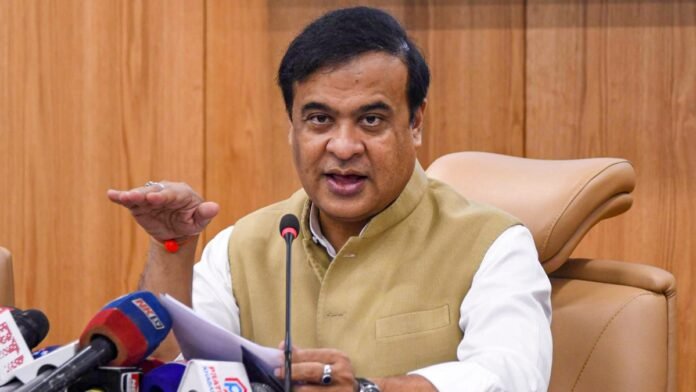Assam’s Chief Minister Himanta Biswa Sarma has raised alarm over the potential threats posed by unchecked infiltration in Jharkhand, warning that the future of Hindus and tribal communities in the state could be at risk if the issue is not addressed. Sarma’s remarks come at a time when the issue of illegal immigration and its impact on local populations has become a growing concern in several parts of India.
Sarma, who has been vocal about national security and immigration control, highlighted the risks that unchecked immigration poses to the cultural and demographic fabric of indigenous communities in states like Jharkhand. He emphasized the need for stringent measures to control immigration, pointing out that if the flow of illegal immigrants continues unchecked, it could endanger the livelihoods, cultural identities, and security of native communities, especially Hindus and tribals.
During his statements, Sarma expressed concern that the demographic shifts due to illegal immigration could lead to a scenario where indigenous communities may no longer hold a dominant position in their own state. He called for stronger immigration controls, including a more vigilant approach to monitoring borders and preventing infiltration. According to Sarma, such measures are critical to ensuring that the interests of native populations are safeguarded.
The Chief Minister pointed out that states like Jharkhand, with their distinct tribal populations, are especially vulnerable to the impact of unchecked immigration. He noted that the influx of people from other regions could lead to increased competition for resources, strained social services, and the erosion of the unique cultural and social fabric of these communities. In his view, it is imperative that governments take proactive steps to ensure that the integrity of tribal societies is not compromised.
Sarma’s statements also resonate with a broader discourse on the issue of illegal immigration across India, which has been a subject of political and social debate for years. Critics argue that unchecked immigration can lead to not only demographic changes but also contribute to rising tensions, competition for jobs, and challenges to social harmony. The issue has often been particularly sensitive in regions with significant tribal populations, as well as in areas where resources such as land and water are already under pressure.
The Assam Chief Minister’s position reflects a growing concern among regional leaders about the long-term consequences of illegal immigration. Many have pointed to the impact on local communities, particularly those who are already marginalized or face socio-economic challenges. Sarma, known for his assertive political stance, has urged the need for national policies that take into account the protection of indigenous populations while also addressing the broader issue of border security.
The Chief Minister’s call for stricter immigration controls has generated mixed reactions. Supporters of Sarma’s stance argue that it is essential to protect the identity and future of local communities, while critics view it as a step towards further exclusionary practices. The debate surrounding immigration is complex, as it intersects with issues of human rights, national security, and the balancing act between maintaining the interests of local communities and being compassionate towards those seeking better opportunities.
In his statements, Sarma has called for the central government to support initiatives aimed at controlling immigration, particularly in border states like Assam, West Bengal, and Jharkhand. He has also emphasized the importance of collaboration between states to formulate policies that address the multifaceted challenges of immigration.
As the issue of unchecked infiltration continues to gain attention, it remains to be seen how both state and central governments will respond. Sarma’s statements have put the issue of immigration and its potential impact on local communities in the spotlight, prompting discussions about the future of regional security, cultural preservation, and the protection of indigenous populations in states like Jharkhand. While the debate continues to evolve, the focus on controlling illegal immigration has undoubtedly become a significant part of the political discourse in several states.


